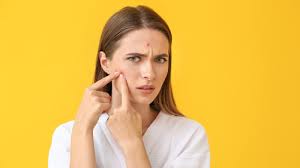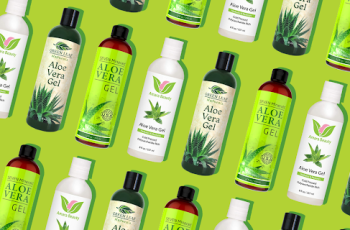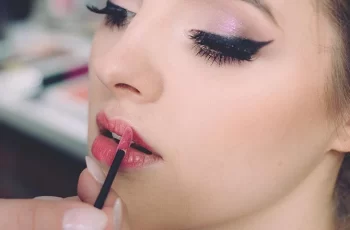
Can Kissing Cause Acne? Dermatologists Break It Down
Kissing plays a powerful role in emotional connection and intimacy. It can lift your mood, reduce stress, and strengthen relationships—but can it mess with your skin too?
Many people wonder if kissing might cause acne, especially those with acne-prone or sensitive skin. Concerns like, “Is my partner’s beard giving me breakouts?” or “Could their lip balm be causing irritation?” are surprisingly common. After all, the face-to-face contact involved in kissing can raise legitimate questions about hygiene, irritation, and bacteria transfer.
To clear up the confusion, we spoke with dermatologists and analyzed the science behind blackheads, breakouts, and bacteria. Keep reading to find out what the experts say about the link between kissing and acne—and learn tips to keep your skin clear no matter how often you lock lips.
First, What Is Acne?
Acne is a complex skin condition involving clogged pores, excess oil production, inflammation, and bacteria. While it’s most common in teenagers, it can affect people of all ages.
According to board-certified dermatologist Dr. Melanie Palm, “A blackhead is an open comedone—a pore that has been clogged with oil, dead skin, and bacteria. When the clog is exposed to air, it oxidizes and turns dark.”
Acne can appear in various forms:
Blackheads (open comedones)
Whiteheads (closed comedones)
Papules and pustules (inflammatory acne)
Cystic acne (deep, painful breakouts)
Understanding that acne is largely driven by internal factors like hormones, stress, and oil production helps clarify whether external triggers like kissing can actually cause breakouts.
So… Can Kissing Cause Acne?
The short answer? No—kissing does not directly cause acne. You won’t get pimples from simply sharing a smooch with someone, even if they have acne themselves. Acne is not contagious.
Dr. Monica Chahar, a New Delhi-based dermatologist and skin expert, says plainly: “Acne isn’t spread through kissing. It’s not an infectious or transmittable condition.”
However, that doesn’t mean kissing can’t indirectly contribute to breakouts under certain circumstances. Here are a few ways that kissing could potentially impact your skin:
1. Bacterial Transfer
Kissing involves close skin-to-skin and skin-to-lip contact, which may result in the transfer of bacteria, oils, and residue from your partner’s face or mouth. If your skin is already acne-prone or sensitive, this can contribute to clogged pores.
While it’s unlikely that kissing alone will cause breakouts, introducing new strains of bacteria or disrupting your skin’s microbiome could be enough to trigger a reaction in susceptible individuals.
💡 Tip: If you or your partner have oily or acne-prone skin, make sure you’re both cleansing your faces regularly—especially before bed.
2. Friction and Irritation (Especially From Beards)
Does your partner have facial hair? Rough stubble or a thick beard can create friction and micro-irritation on your skin during kissing. This physical stress can weaken the skin barrier, increase inflammation, and make breakouts more likely, particularly around the chin, jawline, and cheeks.
This is known as acne mechanica—a type of acne caused by friction, pressure, or rubbing.
💡 Tip: If your skin reacts negatively to your partner’s beard, use a calming moisturizer after close contact and avoid over-scrubbing the affected area.
3. Lip Balms and Skincare Products
Your partner’s lip balm, aftershave, or skincare products might be to blame—not the kiss itself.
Some products contain comedogenic ingredients (those that clog pores) or fragrances that irritate sensitive skin. When transferred through kissing, these ingredients can settle around the mouth or chin area, triggering breakouts or allergic reactions.
💡 Tip: Ask your partner about their lip and skin products. Opt for non-comedogenic, fragrance-free formulas to reduce the risk of irritation.
4. Saliva and Moisture Buildup
Excess saliva from prolonged or enthusiastic kissing can cause skin around the lips to become damp and irritated. Prolonged moisture exposure can disrupt your skin’s protective barrier, increasing the chance of inflammation and clogged pores.
This is especially common in people with perioral dermatitis—a facial rash that can be aggravated by saliva or skincare occlusion.
💡 Tip: After kissing, gently pat the area around your mouth dry and reapply a light, non-irritating moisturizer to protect the skin.
The Real Causes of Acne (That Have Nothing to Do With Kissing)
Rather than blaming your love life, consider these proven factors behind most acne breakouts:
1. Hormonal Changes
Hormones are a primary driver of acne. Fluctuations during puberty, menstruation, pregnancy, and menopause all affect oil gland activity. More oil = more clogged pores = more acne.
2. Genetics
If your parents had acne, there’s a higher chance you’ll deal with it too. Genetics influence skin type, oil production, and how your skin reacts to inflammation.
3. Stress
Stress raises cortisol levels, which increases oil production and can worsen acne. It also impairs your immune system’s ability to fight off inflammation.
4. Diet
Research links high-glycemic foods (like sugar and white bread), dairy, and certain fats to acne in some people. A diet rich in whole foods, fruits, and vegetables is generally better for your skin.
5. Poor Skincare Habits
Using harsh products, skipping cleansing, or overwashing your face can all disrupt the skin barrier, leading to more breakouts. Balance is key.
6. Environmental Factors
Pollution, humidity, and even wearing a mask for long periods (aka “maskne”) can lead to clogged pores and flare-ups.
How to Prevent Acne—Even If You Kiss Often
You don’t need to give up kissing for clear skin. Just build a skincare routine that supports a strong barrier and prevents clogged pores. Here’s how:
✔️ Cleanse Properly
Wash your face twice daily with a gentle, non-comedogenic cleanser. This removes sweat, oil, and bacteria without stripping the skin.
✔️ Hydrate With Water
Drink plenty of water daily. Hydration helps regulate oil production and supports your skin’s natural detox process.
✔️ Use Non-Comedogenic Products
Choose moisturizers, sunscreens, and cosmetics labeled “non-comedogenic.” These products are formulated to avoid clogging pores.
✔️ Exfoliate Gently
Use a chemical exfoliant like salicylic acid or glycolic acid 2–3 times per week. These help prevent buildup and unclog pores.
✔️ Wear Sunscreen Daily
Sun exposure worsens acne scars and can dry out the skin, triggering more oil production. Use an oil-free SPF 30 or higher.
✔️ Avoid Touching Your Face
This minimizes bacteria transfer and prevents irritation from your hands or nails.
✔️ Practice Stress Management
Yoga, meditation, exercise, or even journaling can reduce cortisol levels and help keep your skin in check.
✔️ Mind Your Diet
Limit processed foods, dairy, and added sugar if you suspect they contribute to your breakouts.
Final Verdict: Can Kissing Cause Acne?
No, kissing does not directly cause acne. It’s not a contagious condition, and your partner’s pimples won’t jump onto your face during a kiss. However, indirect factors like bacteria transfer, product residue, friction from beards, and saliva exposure can irritate sensitive skin and contribute to breakouts—especially if you’re already prone to acne.
So, if you’re noticing more pimples after spending time with your partner, don’t panic—and don’t ditch the kisses. Instead, focus on strengthening your skincare routine, minimizing irritants, and communicating openly about skincare habits with your significant other.
After all, healthy skin and a healthy relationship go hand-in-hand.


